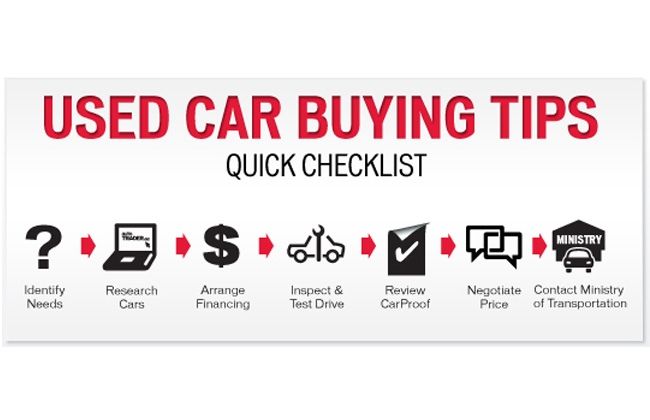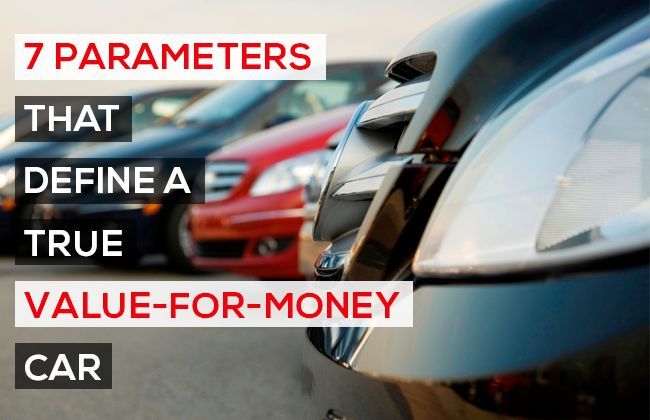6 Things to Know Before Buying A Used Car
Modified On Oct 12, 2015 02:51 PM By CarDekho
- Write a comment

Buying a used car is a real challenge as the usage details and present condition of the car has to be verified before the purchase. Satisfaction costs much and there are high chances of getting cheated.
There are risks but following the below general advices you can find the task of buying a used car hassle-free.

1)Decide Before You Shortlist The Car
- Decide your Budget: The first thing you should consider before choosing your car is to decide the price range. Try to take in account only those cars which fall in your pre-estimated budget that include either cash or down payment and EMIs.
- Your Requirements: After the budget, determine what type of car you want and for what purpose you are willing to buy a four-wheeler. Analyze your considerations on various factors such as fuel type, seating capacity, driving conditions, etc.
- Some important points must also be considered before making up your mind like- the fuel economy, reliability of the car model, resale value of the model, etc.

2)Do Your Homework
- Find a Source: It is best to deal directly with the previous car owner. Car portals such as Cardekho.com are an ideal place to search and fill out a request form for the used cars of your choice. These portals usually contact the dealer closest to you and provide them your contact details for further interactions. You can also rely used car dealers/brokers, authorized dealers, personal referrals and newspaper ads for more options.
- Finance: There is no better way than cash payment but nowadays you can also consider the option of finance from various companies that provide loan on the purchase of a used car.
- Research about your chosen Used Car: Research about your choice on various car portals and newspapers to end up on a list of 8-10 different cars. Gather all the information that has been provided about these cars on the site including their photographs, specification, features, etc. advertised on these site.
- Consider the Reviews: Take the online car reviews and the reviews of friends or relatives that already own cars of all the different models of your choice.
- Find the Market Value: Contact car manufacturers or use online quote systems to get a fair idea of the range of the market value of the cars. Finalize your purchase based on 3-4 options available with different used car sellers.

3)Ask about Car History
- Distance Travelled: Check the distance travelled by the car till the date. An average of 12000 km/year for a petrol car and 15000 km/year for a diesel car is still worth buying.
- Avoid Aged Cars: Try to avoid cars older than 3 years as they may incur more maintenance afterwards and also they might not be certified.
- Number of Ownerships: Single owner cars are always more reliable.
- Original Papers and Certification: Always ask for original Insurance papers, Registration Certificate (RC), Maintenance and Warranty Certificate from the seller.

4)Evaluation of Car Condition
- Always inspect a car in daylight. Avoid to visiting for car inspection in rains or night.
- Exterior Check: Check for the signs of re-painting or rusting, dents, scratches on the car exterior. Give a close look to the tyres for wear and tear and their manufacturing date. Check if there is any oil leakage where the car is parked. Also examine the condition of the bonnet.
- Interior Check: Check the condition of the engine, quality of the steering wheel, brake pedals, and the dashboard. Quality of the car electronics and technologies equipped in the car interiors are also important. Price of the car can be evaluated depending on the new and advanced features fitted in the interiors of the car. Do not overlook the quality of the car seat covers and other upholstery.
- General Check: Apart from the exterior and the interior, also find out if the car has been a victim of flood or water logging. Make sure the air filters are not blocked. Enquire about all the replacements you notice during your inspection if they are not mentioned by the owner previously.

5)Test Drive
For ignition system to be efficient, the car must start in the first attempt. Also the steering wheel, brake pedals, clutch, and the gear shifts should be synchronized and smooth. Test the car under as many conditions as possible: bumper-to-bumper traffic, open highways, ups and downs to detect if the car makes any sound. Check the acceleration and deceleration efficiency and the mileage. Note down all the points and be sure they are same as the seller has promised you. Take the car to your trusted mechanic or an authorized dealership to check accidental damage and its overall condition.

6)Negotiate and Finalize the Deal
Negotiate according to the points you confronted during your evaluation. Also keep in mind the market price and the maximum price you are willing to pay. Do not get excited and buy a car in impulse. Even if the car seems to be above your expectations try to negotiate as much as possible. Discuss the mode of payment with the seller and go through the legal papers thoroughly before closing the deal. Before making the final payment get assured that the car is transferred to your name and RTO formalities are complete. As soon as you get the car, take it for servicing, battery and engine oil change.
2 out of 2 found this helpful











